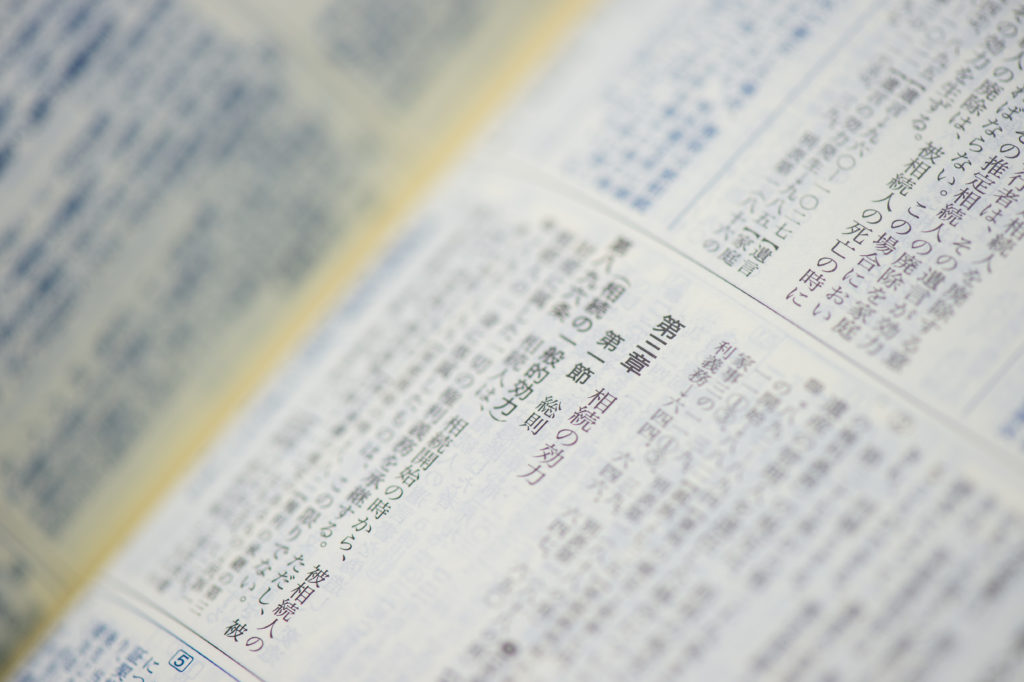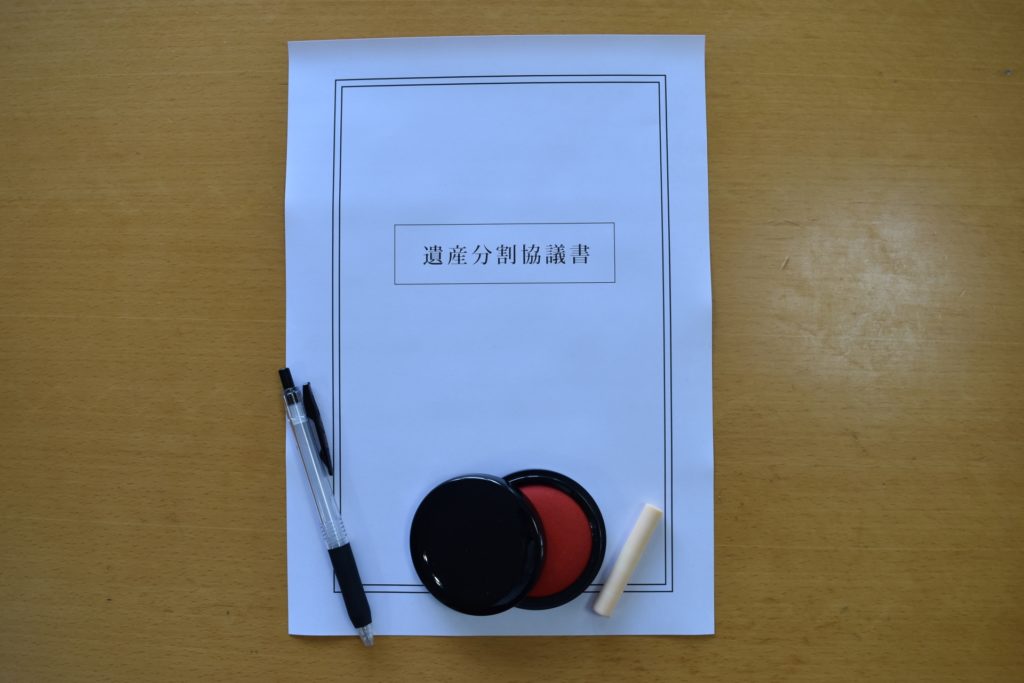
Inheritance Law in Japan
There are specific chapters for inheritance in Civil Code, starting from Article 896.
In Japan, at the time a person dead, heirs will succeed blanket rights and duties attached to the property of the decedent.
Followings are some basic ideas for inheritance in Japan.
- There is no probate process in Japan in terms of dividing inherited assets. Probate process is only applicable to probate the Will left. Family Court will be responsible for this process.
- Heirs can elect for renunciation. This election should be raised up to Family Court within three months of the time heir has knowledge that there has been a commencement of inheritance for heir.
- Dispute will be raised up to Family Court first.
- Basically, heirs can be precisely traced with “koseki”(family registration) as proofs.
- Non-married partner is not treated as heir at all times. No rights and obligations left.
- Adopted-child is treated as an heir both for adoptive parents and natural parents except for special adoption.
- Affliated-child is treated as an heir.

Who are heirs?
Look at carefully at following chart as definition as heirs.
| Heirs | Heirs’ share | |
| First rank | Spouse | 50% |
| Children | 50% as all children Each child’s share being equally divided | |
| Second rank | Spouse | Two-thirds |
| Lineal ascendent | One-third as all ascendents Each ascendent’s share being equally divided | |
| Third rank | Spouse | Three-fourths |
| Siblings | One-fourth as all siblings Each sibling’s share being equally divided, except for half-blood sibling being half |
Footnotes for first rank
When spouse had passed away before decedent’s death and first rank is applicable, children will take 100% of share.
When child had passed away before decedent’s death, heirs per stirpes will assume the share.
Footnotes for second rank
Second rank is applied only when first rank does not apply.
When spouse had passed away before decedent’s death, lineal ascendents will take 100% of share.
Note that third rank will not be applied when ANY ascendent being alive at the time of decendent’s death.
Footnotes for third rank
Third rank will be applied only when first or second rank are not applicable.
When spouse had passed away before decedent’s death, siblings will take 100% share.
Per stirpes of siblings can take the same share of dead siblings.

Division among heirs
When no Will being left, ALL heirs should agree for division of assets of the decedent. There is no exception for this. Documentation(“isan-bunkatsu-kyogi-sho”; division agreement) is required as well. As Japanese practice, that document require all heirs’ signatures and seals(“inkan” or “hanko”) which must be registered at each heir’s residing municipality.
In other words, even when only one heir does not agree with the division plan, no money can be distributed among heirs. This is big hurdle. For example, when third rank applies and number of siblings counts 10 people, they all must agree for the division agreement. Some of siblings might have passed away – those children must be involved. Aging sociaty – when time passes longer, involved person will be more.
Financial instututions like banks and Legal Affairs Bureau which is responsible for real estate registration, always require signed and sealed original division agreement as well as proofs like “koseki”.
Gyoseishoshi Lawyer assume such documenation which is exclusive professional rights in Japan for Gyoseishoshi Lawyer.

When Will was left
Bacisally, division will be realized by the Will left. Will has legally binding nature since decedent has the right to decide how to dispose of decedent’s assets at the time of death.
Question is the formality – Civil Code states in Article 960 as followings;
No will shall take effect unless made in accordance with the formalities provided in this Code.
Division has legally binding nature ONLY IF by due formality.
In Japan, Will should be written by three ways – holograph document(a), sealed and notarized document (b) and notarized document(c).
Actual execution of division of assets will require original Will. Only Notarized document(c) will not need probate at Family Court. On the other hand, holograph document(a) and sealed and notarized document(b) needs probate at Family Court. This process is mandatory. All heirs should be specified and Family Court will call for all heirs for probate. Basically, all heirs should attend at this process, held by family court.

